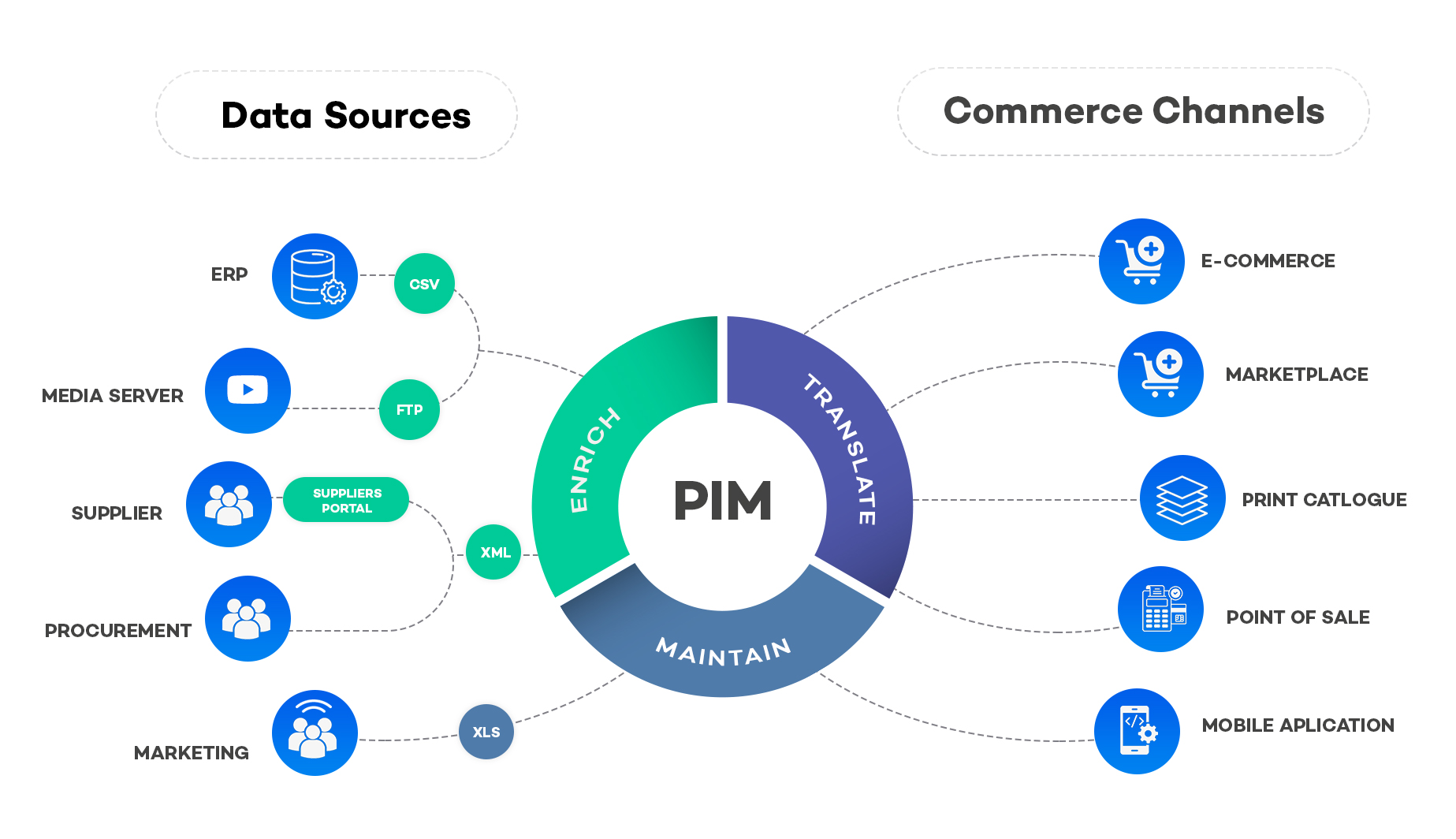In the fast-paced realm of retail, managing product information efficiently is nothing short of an art. In this digital age, where consumers demand seamless experiences and accurate information, mastering the art of product information management has become a strategic imperative for retailers.
Let’s embark on a journey to unravel the depths of PIM, exploring what it is, how it revolutionizes retail operations and ensure success in this transformative endeavour.
Understanding why PIM is a retailer’s best friend
At its core, PIM is a centralized platform designed to collect, manage, enrich, and distribute product information. From detailed descriptions and high-resolution images to pricing and technical specifications, PIM systems act as the heartbeat of a retailer's digital ecosystem. By providing a single source of truth for all product-related data, PIM ensures consistency across various channels, both online and offline. It's the linchpin that aligns your brand's messaging, enhances customer experiences, and drives sales.
Let’s dig deep into how PIM helps retailers grow:
1. Unifying Product Information:
PIM consolidates scattered product data into a coherent and structured format. This consolidation not only ensures consistency but also simplifies the management of vast product catalogs.
2. Optimizing Multichannel Operations:
In today's multichannel retail landscape, PIM acts as a bridge between different platforms. It enables retailers to seamlessly distribute product information across websites, mobile apps, social media, and brick-and-mortar stores, ensuring a uniform brand experience.
3. Enhancing Customer Experience:
Detailed product descriptions, compelling images, and accurate specifications lead to enriched product pages. This, in turn, engages customers effectively, aiding their decision-making process and fostering brand loyalty.
4. Streamlining Workflows:
By automating repetitive tasks, PIM frees up valuable human resources. Retailers can allocate their teams to more strategic initiatives, thereby optimizing operational efficiency and reducing costs.
5. Enhanced Data Accuracy:
PIM ensures that product data is accurate and consistent across all channels. With centralized control, retailers can avoid discrepancies, inaccuracies, and misinformation, building trust with customers.
6. Faster Time-to-Market:
PIM expedites product launches. Retailers can swiftly introduce new products by efficiently managing the entire product lifecycle - from data input to distribution. This agility in product launches can give retailers a competitive edge in the market.
7. Efficient Localization:
For global retailers, PIM facilitates efficient localization of product information. It allows businesses to adapt product details, language, currency, and regional preferences seamlessly, ensuring a tailored experience for international markets.
8. Personalized Marketing:
PIM enables retailers to collect and manage detailed customer data. By understanding customer preferences, behaviours, and purchase history, retailers can personalize marketing efforts. Tailored product recommendations and targeted marketing campaigns enhance customer engagement and drive sales.








.png?h=250&fm=webp)
.png?h=250&fm=webp)
.png?h=250&fm=webp)



.png?h=250&fm=webp)
.png?h=250&fm=webp)
.png?h=250&fm=webp)


.png?h=250&fm=webp)



.png?h=250&fm=webp)
















.png?h=250&fm=webp)

.png?h=250&fm=webp)
.png?h=250&fm=webp)



































































































































.png?h=250&fm=webp)


.jpg?h=250&fm=webp)





 copy.png?h=250&fm=webp)























_ Why do you need one.png?h=250&fm=webp)


























































.jpg?h=250&fm=webp)

.png?h=250&fm=webp)



.png?h=250&fm=webp)

.jpg?h=250&fm=webp)




.png?h=250&fm=webp)









.jpg?h=250&fm=webp)
